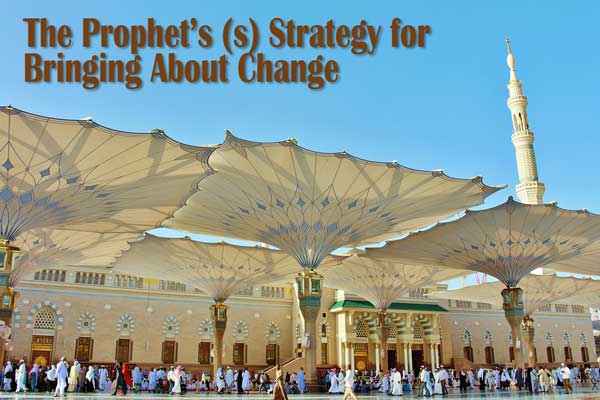Intrigued by its striking architecture, I wandered into an ornately decorated Buddhist Temple the way one wanders into a museum. Through two heavy columns bearing carvings of stylized foliage, a larger-than-life, golden Buddha sat wearing a cheerful smile. I was smiling too, entertained by the exotic spectacle: bright garlands, faux flowers, smoky incense, and the offerings of fruit presented by the locals with lowered heads.
A tourist far from home, I noticed that the restaurant owners who lovingly and graciously fed me their flavorful delicacies also provided food to their family god-statues. To me, this religious devotion was merely a component of an intriguing culture — like the conical hats worn by street vendors selling luscious, freshly harvested bananas; or the groups of men and women practicing Tai Chi quietly in the public square, their deliberate motions as if slowing the passage of time before the sun had fully risen; or the fish soup hungrily enjoyed by everyone for breakfast.
“The Messenger of God is an excellent model for those of you who put your hope in God and the Last Day, and remember Him often”
My momentary presence there in Southeast Asia was no more impactful than a bird on one’s windowsill. The religion and culture of the people were curious blends of beauty and mystery, as paintings or artifacts in a gallery. Yet, the rhythm and peculiarities of their lives felt no more extraordinary than that of the Americans I knew who flowed in and out of churches, synagogues, restaurants, and malls. The typography may differ, as do beliefs, customs, and etiquette, but the human essence present in each is the same. The number of religions flourishing through the vast continents of the Earth – now and throughout the millennia – I surmised, must be innumerable. What a strange phenomenon that there were so many religions, such a variety of beliefs, and the adherents of each religion think that only theirs is true!
Confusion and Competition
Richard Dawkins once quipped, “How thoughtful of God to arrange matters so that, wherever you happen to be born, the local religion always turns out to be the true one.” Dawkins is being sarcastic, implying that the only conclusion is that none of the religions is true. Any other possibility hadn’t occurred to me either. The quantity alone seemed to indicate that God and religion were invented by the human mind, perhaps as some theorists suggest, out of evolutionary need. If one of these belief systems could be uniquely true, how unfortunate for the children born anywhere but in that land! Moreover, how could a person be expected to decipher truth from falsehood when faced with so many choices – literally a world of different religions? I found it far more reasonable to assume that religion was simply a product of human ingenuity, one that may eventually become as obsolete as the telegraph.
It is perhaps easier to accept the view that religion is no more than a human adaptation than to analyze the vast range of perspectives and understandings which vary not only from religion to religion, or sect to sect, but even from individual to individual.
Countless religions, too many interpretations, and then a multitude of people who don’t believe in any god or supernatural life force – all of them certain they are “right” and others, with their varying beliefs, wrong. Would Earth be a more peaceful place if we were to view one another’s religious choices the way I witnessed the Buddhists’ worship – like a thoughtful and intrigued onlooker? Critics of religion often see as a major and inescapable flaw in being religious the animosity that seems to erupt between people of different faiths, purportedly resulting from the belief that one, uniquely, holds the truth and all others are indoctrinated in falsehood.
Islam: Everyone Has Access to Salvation
Adherents of many religions often profess that salvation is only for people of a particular label. The word Islam, however, isn’t a label in the usual sense. Translated, Islam means simply “submission to God” and the word Muslim means “one who submits.” The Quran repudiates the exclusivist claims of religious adherents, using Jews and Christians by way of example: “And they say, ’None will enter Paradise except one who is a Jew or a Christian.’ That is [merely] their wishful thinking. Say, ‘Produce your proof, if you should be truthful’” (Quran 2:111). Then we can consider the following verse: “And whoever desires other than Islam as religion — never will it be accepted from him, and he, in the Hereafter, will be among the losers” (Quran 3:85). This is not to be taken as referring to a nominal title or label. The verse clearly mentions “whoever desires other than Islam,” which is a conscious choice of the person to reject submission to God (Islam) and desire another form of worship. A person born before the advent of Muhammad or in a part of the world where Islam is not known, is not included among the losers, since they did not make a conscious choice to reject Islam. People who are uninformed about Islam or are misinformed about it are not held responsible. Such will be given the opportunity to choose or to reject in the hereafter, as mentioned by the Prophet: “The one who passed away between Prophets will say, ‘O Lord! Your Messenger did not come to me.’ Then a Messenger will be sent to him saying, ‘Enter the fire.’ By the One in whose Hand is my soul, if they enter it, it will be cool and safe” (as-Silsilah as-Sahihah).
A non-Muslim, uninformed about Islam, may enter paradise, whereas a Muslim, informed about Islam, might be consigned to hell. Islam doesn’t promise success or failure according to one’s label, but rather on one’s belief in, and surrender to, the one God, and his or her actions: “Whoever submits his face to God while being a doer of good will have his reward with his Lord. And no fear will there be concerning them, nor will they grieve” (Quran 2:112). Islam defies many of the assumptions and criticisms made about religion, acknowledging the existence of other religions and the reality that some might have originated with the teachings of a true prophet sent by God but which were subsequently altered or corrupted over time. Islam paints a picture of divine revelation spread over time and geography, a broad and encompassing paradigm that ties religions loosely together as part of a bigger picture.
One Common Thread
I remember introducing my children to a Christian neighbor years ago. Her pleasant smile twisted momentarily, slightly taken aback. She made eye contact and said, “Those sound like biblical names.” And indeed, my children’s names are found in the Bible, as well as the Quran. In that moment, my family’s Islamic faith was fundamentally linked with our neighbor’s faith. If she had assumed our religions were disparate prior to that introduction, she became aware they were related, even if she didn’t know exactly how. Jews claim Moses brought the truth, Christians claim Jesus brought the truth, and Muslims claim Muhammad brought the truth. Yet, Muhammad, who transmitted the Quran to us by God’s will, claimed that all of them brought the truth, along with Adam, Noah, Abraham, David, and every other prophet sent by God.
The Quran reminds the Jews and Christians who dispute with one another over religion about their common roots: “They say, ’Be Jews or Christians [so] you will be guided.’ Say, ’Rather, [we follow] the religion of Abraham, inclining toward truth, and he was not of the polytheists’” (Quran 2:135). It goes on to stimulate thinking with a question: “Or do you say that Abraham and Ismael and Isaac and Jacob and the descendants were Jews or Christians?” (Quran 2:140). Islam, a word denoting the peaceful yielding to the command and rule of the Divine Creator, is free from the constraints of time and place.
According to Islam, all of the prophets taught worship of God alone – Islam – and everyone who followed them were, by definition, “submitters” or in Arabic, Muslims: “[It is] the religion of your father, Abraham. God named you Muslims before and in this [revelation] … So establish prayer and give charity and hold fast to God. He is your protector; and excellent is the protector, and excellent is the helper” (Quran 22:78).
Departure from the Way
So, why all the diversity of religious belief? Over time, the original messages calling people to this straight path were altered, through human error, mistranslations, and/or modifications of Scripture including additions and deletions of text. This is not a shocking concept. Jews, Christians, and Muslims are aware that human beings have altered God’s teachings, sometimes deliberately and sometimes through error or misunderstanding; and sometimes have rejected God’s revelations altogether, all resulting in deviation from His guidance. An example of this phenomenon familiar to all three traditions is the story of the Children of Israel who, although Moses taught the worship of God alone, chose to worship a golden calf (Exodus 32:1; Quran 2:51) According to the New Testament, Jesus rebuked his people for departing from the path saying, “For you ignore God’s law and substitute your own tradition” (Mark 7:8).
Moses, Jesus, and Muhammad: An Invitation to Walk with Them
We read in the Quran the following: “This is My path, which is straight, so follow it; and do not follow [other] ways, for you will be separated from His way” (Quran 6:153). It is precisely because the original messages from God were lost, altered, or forgotten that, out of His Mercy and Generosity, He repeatedly sent prophets and messengers to help guide whoever was willing, back to the path. Moses, Jesus, and Muhammad were each tasked with this profound responsibility. They were appointed to present themselves as messengers of an unseen God, calling to success in this life and in the life to come in the Hereafter. Yet, throughout their struggles to help people who often rejected their help, they pushed on with fortitude and benevolence.
“Then We gave Moses the Scripture, completing [Our favor] upon the one who did good and as a detailed explanation of all things and as guidance and mercy that perhaps they would believe in the meeting with their Lord” (Quran 6:154). The prophets followed each other as if in one another’s footsteps: “And in their footsteps We sent Jesus the son of Mary … We sent him the Gospel: therein was guidance and light, and confirmation of the Law that had come before him” (5:46). Jesus preached, “It is God Who is my Lord and your Lord; then worship Him. This is a Way that is straight” (Quran 3:51).
In response to the rejection of the people to whom these prophets were sent, the messengers from God remained patient. God reminded them that they were sent to convey the message and invite their people, but not as managers over them: “But if they turn away — then We have not sent you, over them as a guardian; upon you is only to convey [the message]” (Quran 42:48).
Our Challenge: Follow Those Footsteps
The Quran is the final criterion intended to help humanity find their way back to the original path: “And We have revealed to you, the Book in truth, confirming that which preceded it of the Scripture and as a criterion over it… Had God willed, He would have made you one nation, but [He intended] to test you in what He has given you; so race to [all that is] good. To Allah is your return all together, and He will [then] inform you concerning that over which you used to differ” (Quran 5:48). It is our job to seek truth, and the more sincere we are in doing so, especially if we appeal for help from the Divine, All-Powerful Creator, the more easily we will begin to find what we seek.
Whatever path one is on, wherever we may be in the world and at whatever stage of life, we can ask ourselves: Is this what God wants of me? Do I have evidence of a message directly from Him telling me so? For the Buddhists presenting offerings to statues, the Christians calling on Jesus as the son of God, and everyone else, if we want to earnestly strive to achieve our purpose, we’ve got to ask ourselves these questions and then persevere until we find the answers. Like Moses, Jesus, and Muhammad, once the path is made clear, our duty is to patiently persevere upon it. Allowing our footsteps to fall into those of the prophets, we take on the responsibility of safeguarding and practicing the truth and passing it on to future generations.
“The Messenger of God is an excellent model for those of you who put your hope in God and the Last Day, and remember Him often” (Quran 33:21).






